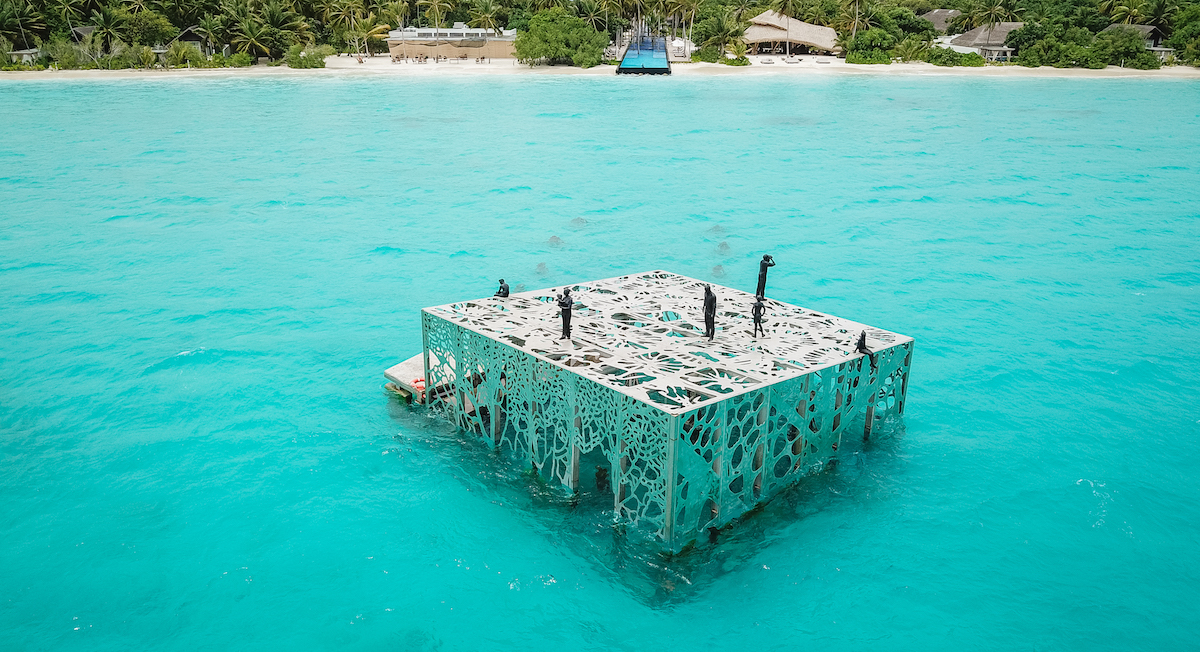
Photo courtesy of Artist Jason deCaires Taylor.
British sculptor Jason deCaires Taylor has once again left his mark on the environment with a stunning new installation. Created for the Fairmont Maldives Sirru Fen Fushi, Coralarium is a semi-submerged art gallery filled with nearly 30 sculptures that will act as a habitat for coral and other marine species.
After nine months of work, the installation has come to life and will live as an evolving monument in the sea. The frame, made from pH-neutral marine steel, is punctuated with cutouts mimicking the organic forms found in the water, making it a solid yet transparent structure. Best of all, marine life is free to explore the new environment.
“It’s almost like an inverse zoo,” says deCaires Taylor in a short film documenting the project. “In cities, we go into space and look at caged animals. Whereas this is almost like we’re the tourists, but we’re in the cage and the marine life can come and go and look at us. It’s almost a reversal of how we interact with wildlife.”
The sculptures are scattered across three levels to demonstrate the interconnectedness of the planet’s elements. At the top, black silhouetted figures sit on the roof, reaching for the sky. Some figures stand inside the gallery and are alternately submerged and revealed according to the tides. The last level is a submerged layer living underwater, in constant contact with marine life. And while marine life begins to place its imprint on the sculptures, the entire structure also evolves according to the light. DeCaires Taylor specifically chose stainless steel for its ability to reflect the surroundings. This allows Colararium to blend into the waters and reflect back the mood and feeling of each day.
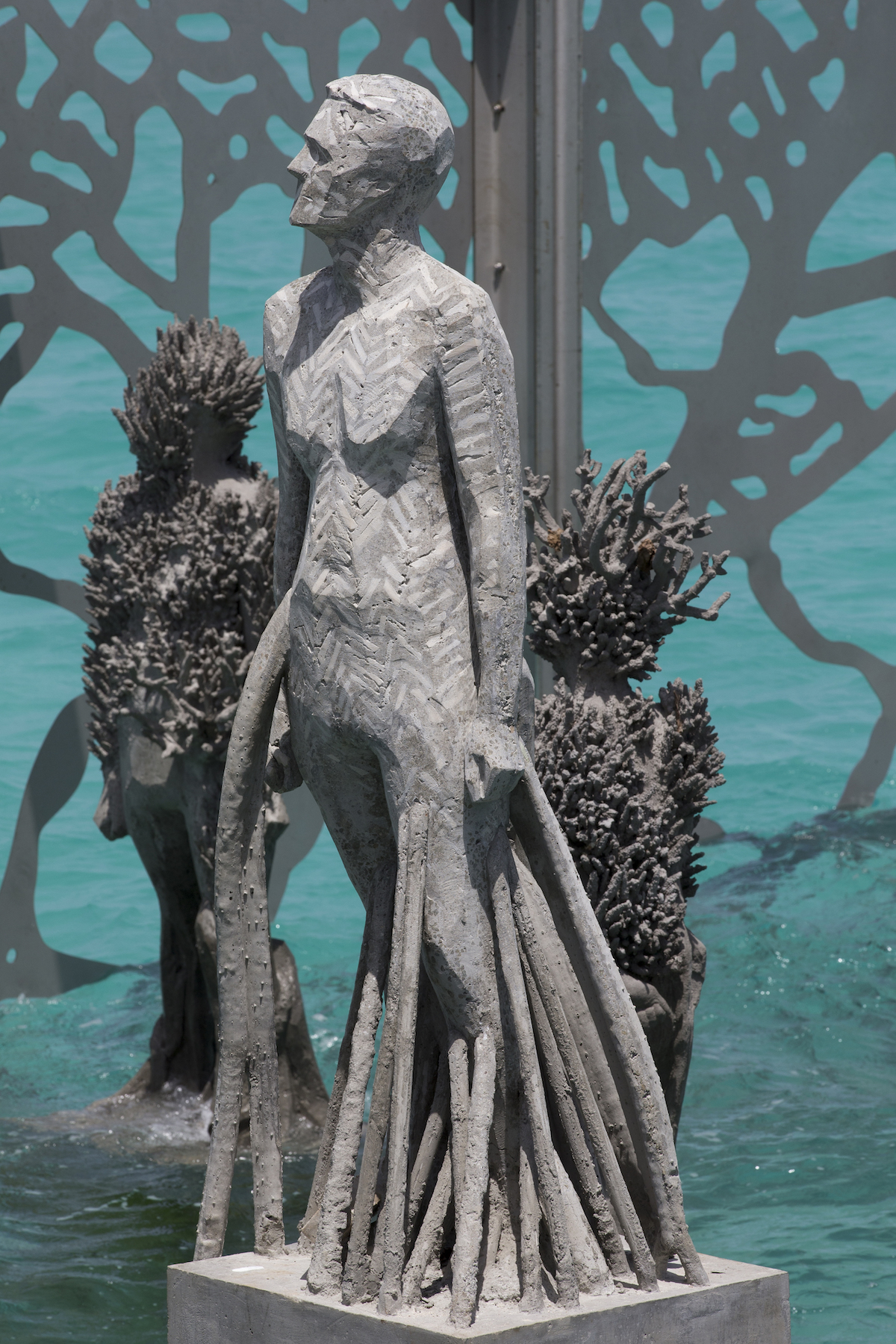
Photo courtesy of Artist Jason deCaires Taylor. (Photo: Cat Vinton)
The sculptures, which are often hybrid forms, were based on casts of real people, about half of whom are from the Maldives. Other organic elements are based on native species to the island and its reefs, including banyan trees, screw pines, and staghorn corals. And to jumpstart the reef, coral propagation was used to encourage growth near the sculptures.
“Most of the works also feature root systems, symbolic of the dependence of humans on the natural environment, a connection to place,” the artist shares. “White fragments of dead calcium coral washed up by the sea form the shapes of bones, ingrained into the surfaces, aiming to show how the coral reefs are part of the Maldivian DNA.”
The Coralarium experience begins while still on land, as deCaires Taylor has made full use of the environment for this installation. A long pool transecting the island denotes the starting point of the experience. Visitors are then led along a pathway marked by underwater poplar trees and native planted coral to a submerged staircase and platform which gives access to the gallery.
Visitors will be able to tour the Coralarium with an expert guide from the Fairmont Maldives, who will explain the sculptures and marine life.
The Coralarium is a 200-ton tidal building filled with sculptures, creating a partially submerged gallery in the Maldives.
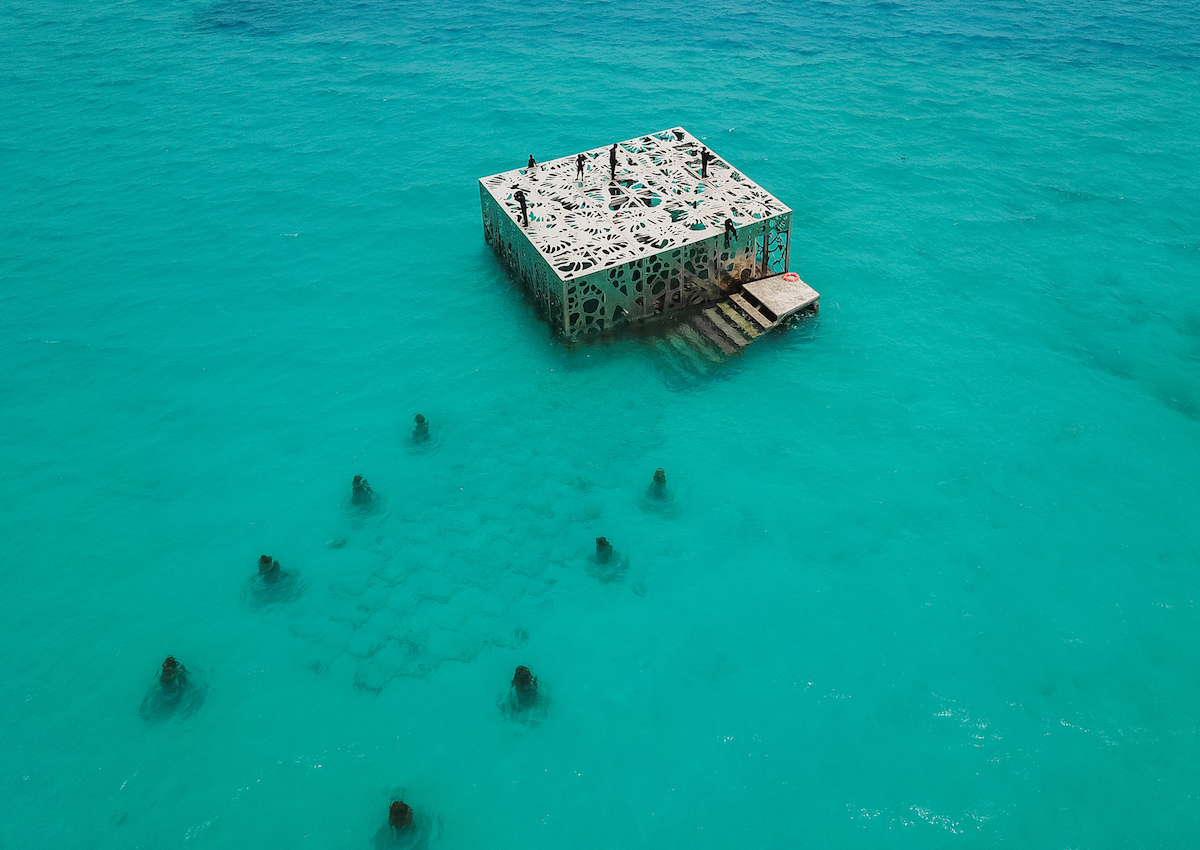
Photo courtesy of Artist Jason deCaires Taylor.
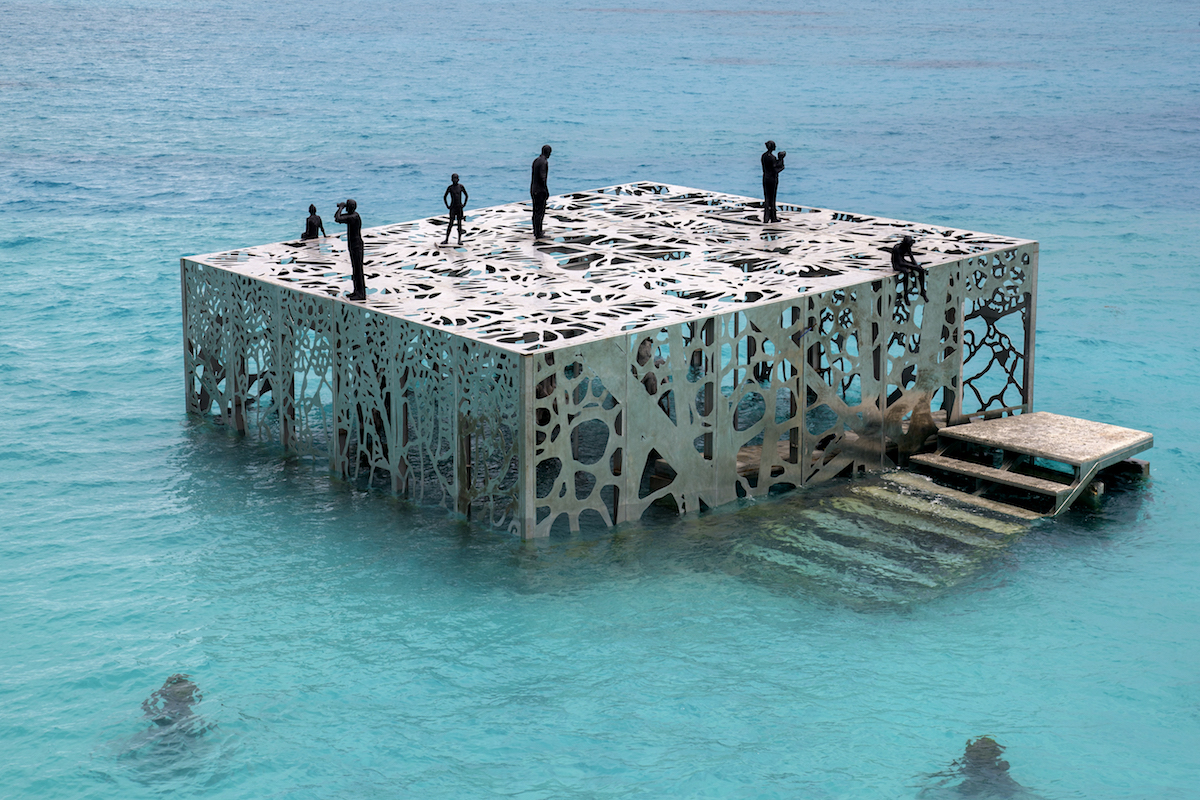
Photo courtesy of Artist Jason deCaires Taylor. (Photo: Cat Vinton)
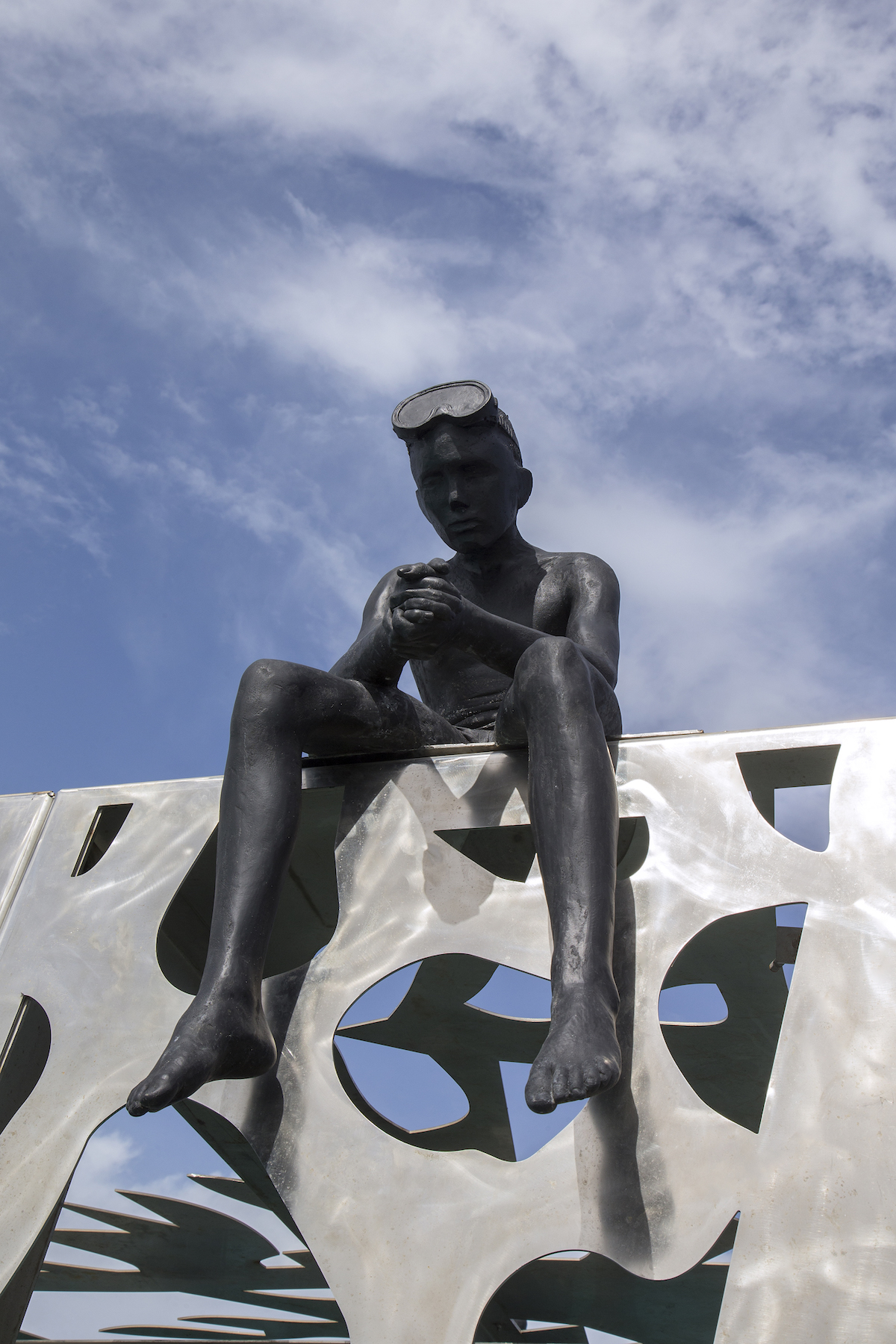
Photo courtesy of Artist Jason deCaires Taylor. (Photo: Cat Vinton)
The artwork will act as an artificial reef, connecting the environment with the installation.
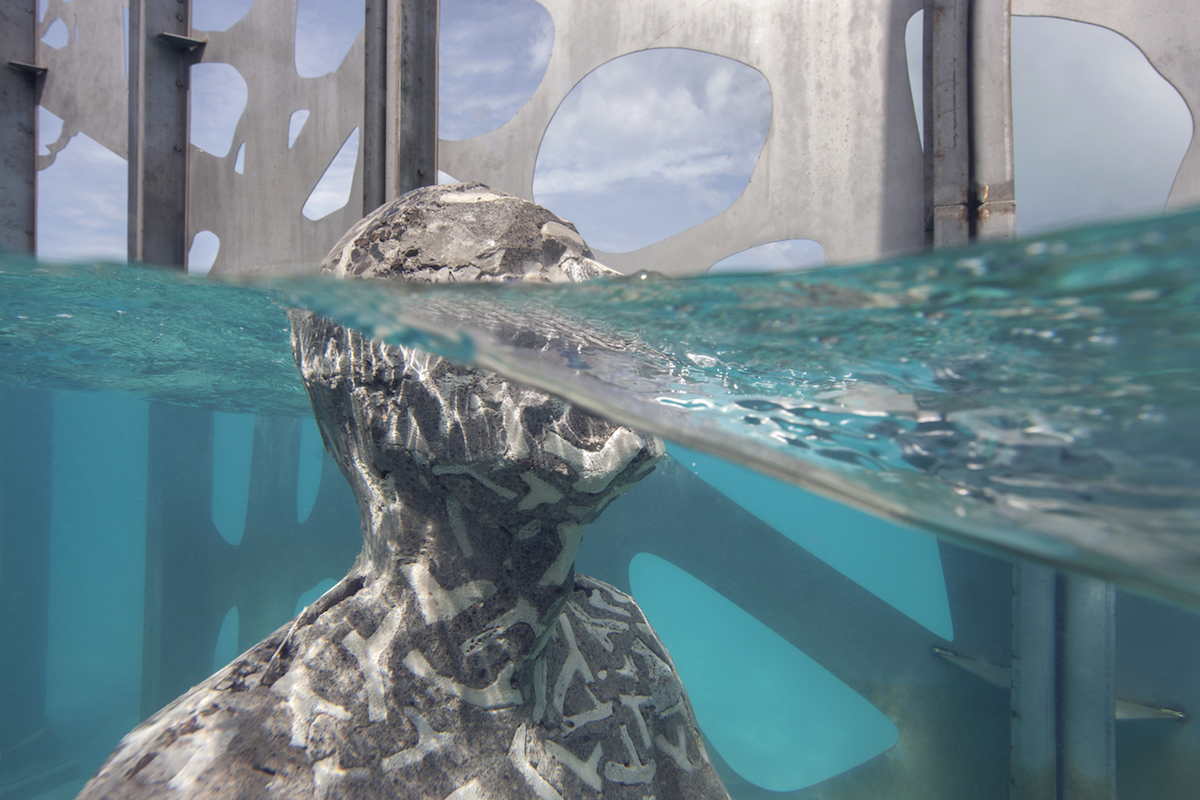
Photo courtesy of Artist Jason deCaires Taylor. (Photo: Cat Vinton)
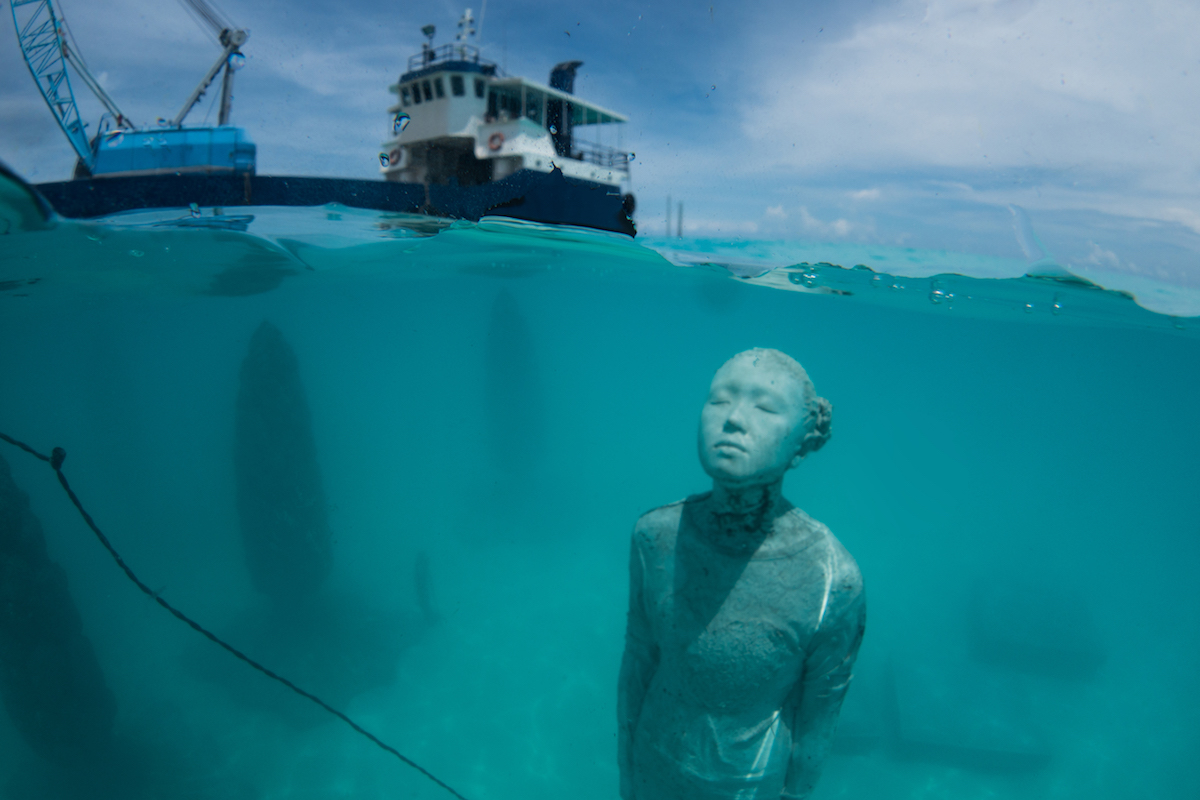
Photo courtesy of Artist Jason deCaires Taylor.

Photo courtesy of Artist Jason deCaires Taylor.
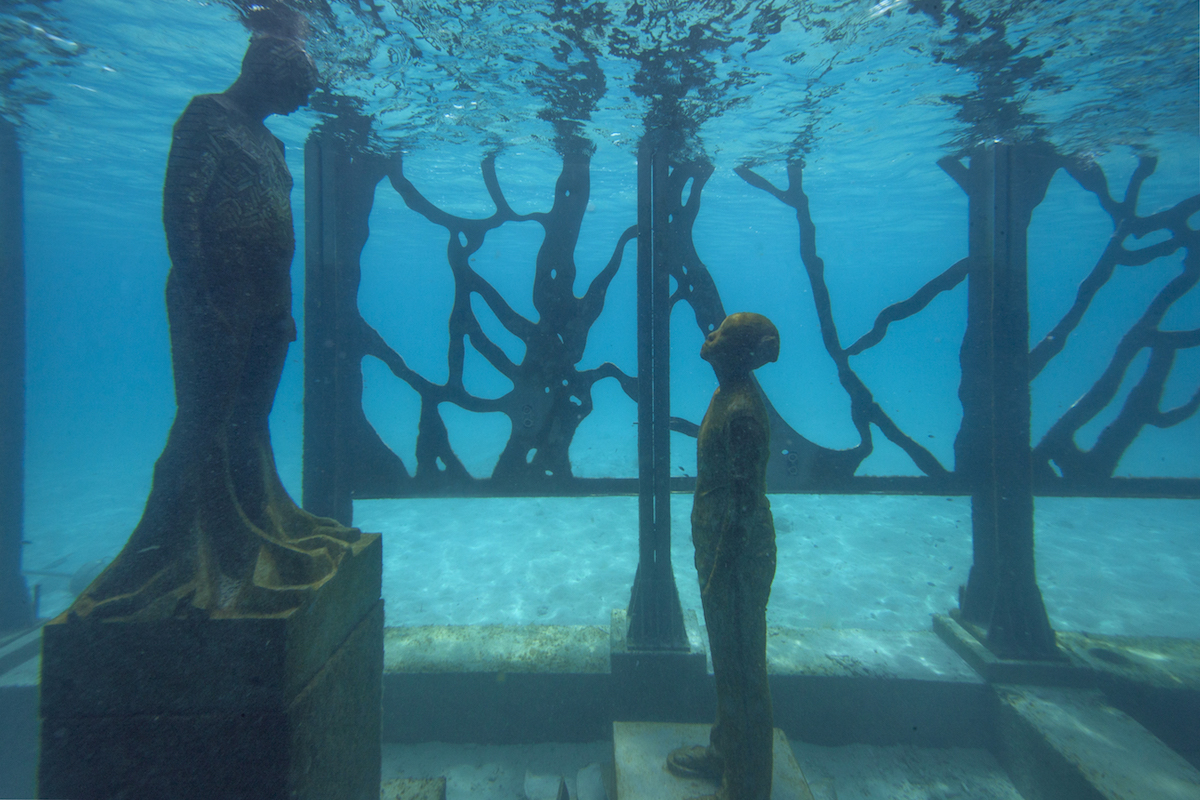
Photo courtesy Artist Jason deCaires Taylor. (Photo: Cat Vinton)

Photo courtesy of Artist Jason deCaires Taylor.

Photo courtesy of Artist Jason deCaires Taylor.
The structure—made from materials that won’t damage the environment—reflects back the dramatic surroundings over the course of the day.

Photo courtesy of Artist Jason deCaires Taylor. (Photo: Cat Vinton)
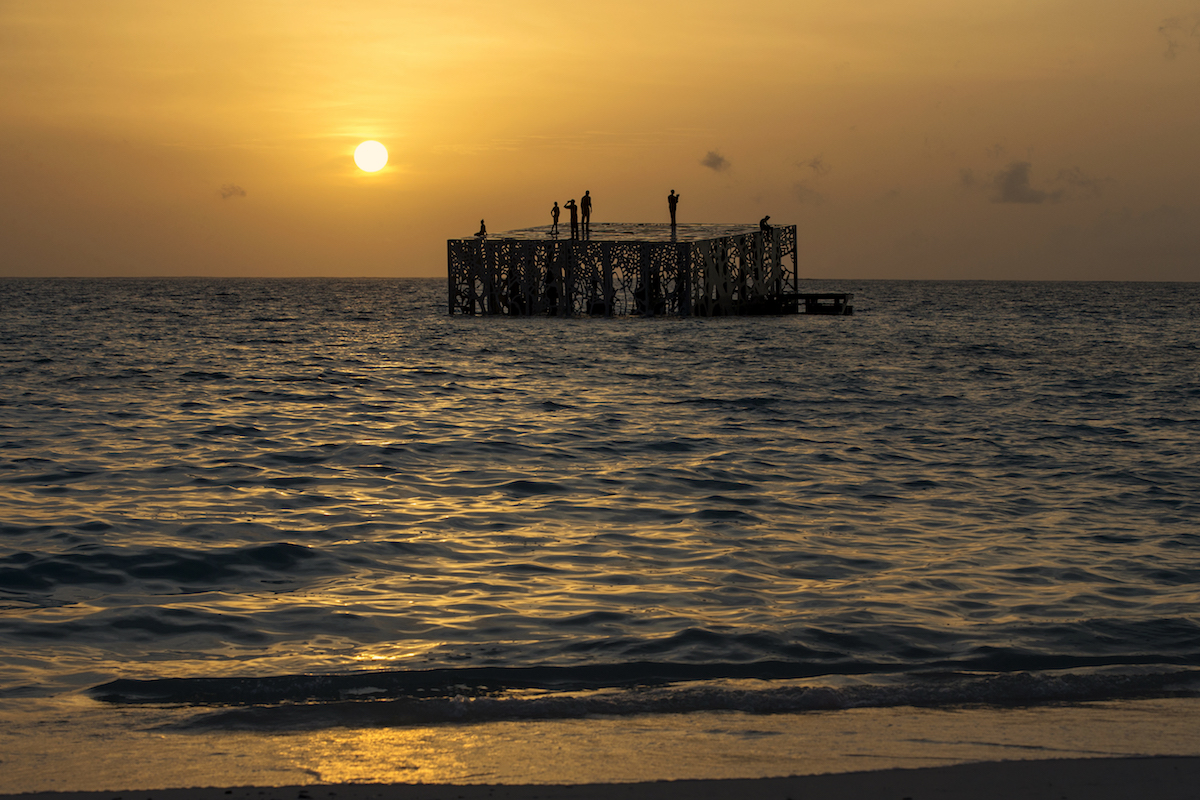
Photo courtesy of Artist Jason deCaires Taylor. (Photo: Cat Vinton)
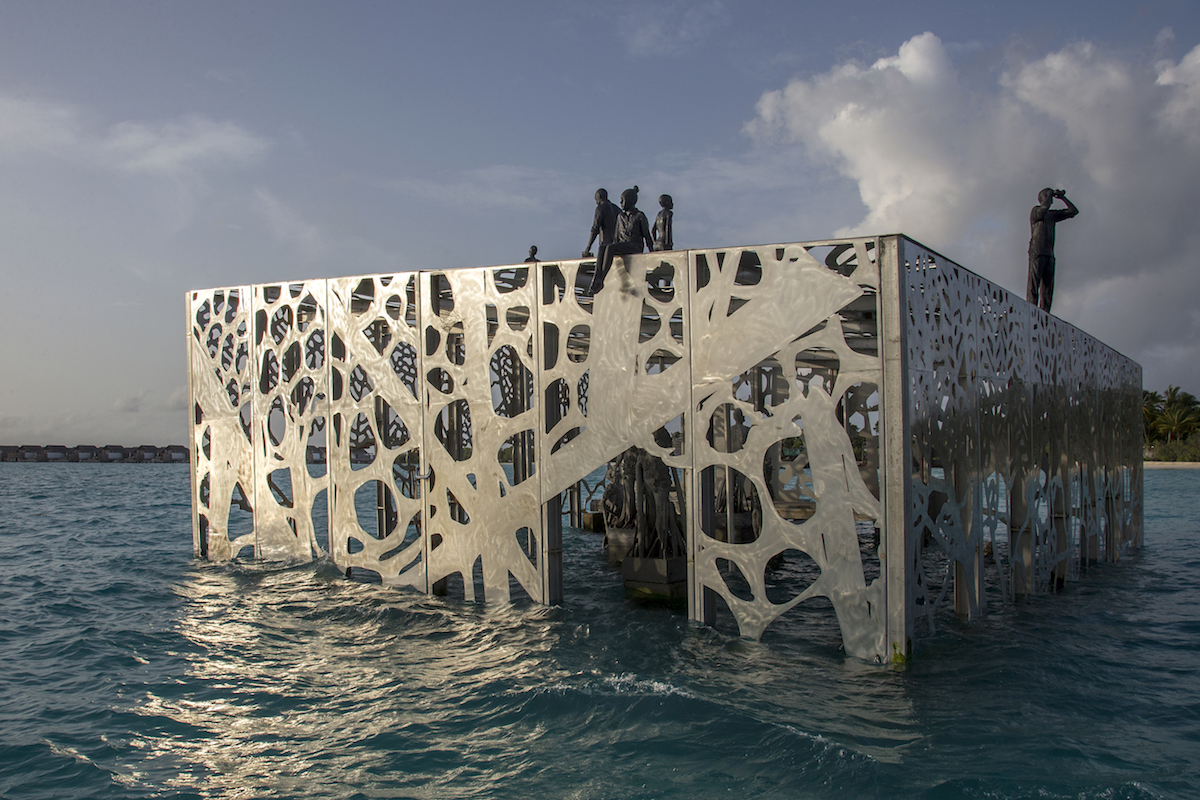
Photo courtesy of Artist Jason deCaires Taylor. (Photo: Cat Vinton)
Learn more about the concept and development of this environmentally-conscious art piece.
Jason deCaires Taylor: Website | Instagram | Facebook
My Modern Met granted permission to use photos by Jason deCaires Taylor and the Fairmont Maldives.
Related Articles:
400 Cement Sculptures Submerged Underwater by Jason de Caires Taylor
Europe’s First Underwater Museum Opens Off the Canary Islands
Underwater Sculptures Celebrate Life on Earth and Protect Aquatic Ecosystems
New Huge Underwater Sculpture Serves as Artificial Reef in Bahamas
